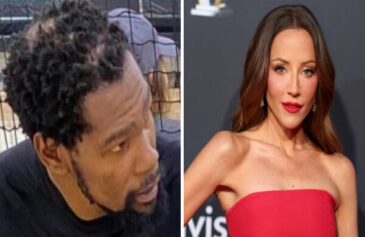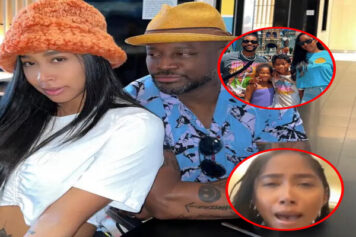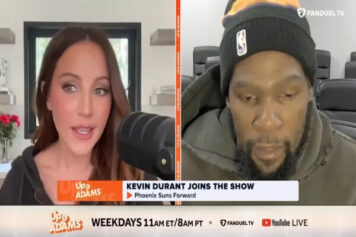Despite being the No. 2 overall pick in the 2008 NBA draft and earning approximately $33 million over his career, it’s clear Michael Beasley is struggling. The 11-year former NBA veteran is the latest guest on “The Pivot Podcast” with co-hosts Ryan Clark, Channing Crowder, and Fred Taylor. Beasley opens up on his struggles to get back to the NBA, and his need for help.
“Being black is so fake right now. Motherf***rs only care when someone dies and it’s time for the cameras to show up,” Beasley sad. “People are out here every day saying that they need help. It’s in the music we’re listening to. Everyone needs help, but everyone is out here walking like they have it all together.”
We don’t want to speculate on Beasley’s mental health status, but it is clear watching the interview that he is struggling with something.
Beasley hails from the DMV area (Washington, D.C., Maryland, Virginia). The same area that Brooklyn Nets’ superstar Kevin Durant is from. Beasley and KD played ball together at the AAU level and have known each other since they were kids.
While their paths to the league were similar on the surface, Beasley’s home life was far more tumultuous. He opens up about bouncing around homes and shelters as a kid every six months as his family dealt with eviction. Beasley was homeless for a time as a kid.
No doubt that trauma has impacted him in ways he doesn’t even fully realize at 33, despite being so open and honest about it.
Beasley also opened up about going down the wrong path as a kid and being arrested, and the decision he had to make at 14.
“I got a rap sheet that started in fifth grade, my first time getting locked up and all that type of stuff. I’m saying, so I stopped playing basketball when I was 11 because I just wanted to do what the dummy is doing, you dig? But like, 14, I had to make a decision. I was on house arrest, and it was either I get locked up until I was 21 or I play basketball.”
Basketball proved to be an escape in a way, as he developed a reputation as a highly skilled and talented prep player. He earned a scholarship to Kansas State University and earned First Team All-American, First Team All-Big 12, Big 12 player of the year, and national freshman of the year honors. Just as KD did the year prior at Texas.
But for Beasley, he was never fully able to overcome his past demons. Just after being drafted Beasley was involved in an incident at the NBA’s Rookie Transition Program, where he lied about being present in a hotel when a fire alarm went off.
In 2009 he checked himself into a Houston rehab center citing exhaustion.
The warning signs were all there. You have a child who has dealt with extremely traumatic events, who doesn’t have the facility yet to process what he’s experienced. He gets into trouble as a teen, but he’s supremely talented at sports. He’s presented two paths. Continuing down the bad road or playing sports and becoming a star.
The latter is the obvious choice, but was he given the opportunity to truly be successful? Not just on the court, but off? Having experienced the kind of trauma Beasley did as a child and going from that straight to college basketball stardom is probably not ideal.
He becomes the No. 2 pick and is now a millionaire overnight. Again, probably not the best situation without the proper safeguards and help in place.
“Do I have to be in Delonte West’s shoes to get help?” said Beasley. “No disrespect to Delonte West or people in his position. But, what does it take to do the right thing? My whole life I asked for help. People called me crazy.
“I don’t leave the house. I play basketball, and I go home. I don’t care what y’all do no more. I try to talk to my kids as much as I can. I’ve reached out so much, so many times to different people and it’s just, I have to die with some kind of dignity.”
Athletes, and Black athletes specifically, are not often granted the humanity they deserve. Just because they are gifted or talented in a sport and make millions doesn’t mean they are immune from suffering.
It likely took a lot for Beasley to be that open. Kudos to him and Clark, Crowder, and Taylor for offering to help. The emotional words from Beasley during that interview sound like a man desperate for someone to see the humanity in him.



